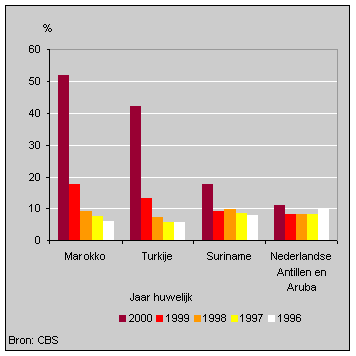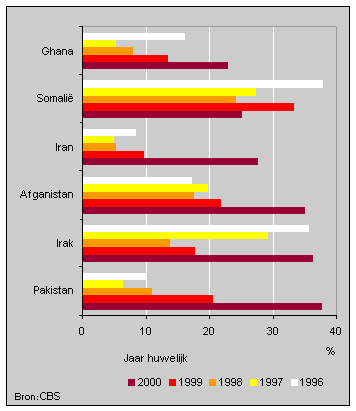Married but not together

Not all couples who get married live together immediately afterwards. In some marriages, one of the partners still lives abroad or elsewhere in the Netherlands. This is a common situation for Moroccan and Turkish marriages in particular. Among the native Dutch population it hardly occurs at all.
Married foreigners who do not live together, January 2001

Many married Moroccans and Turks postpone living together
Half of all married Moroccans do not live together with their partners in the first year of the marriage. For Turks this is four out of ten. For people of Surinamese, Antilleans and Aruban origin the percentage is much lower.
The longer ago the marriage took place, the larger the proportion of partners living together. Five years after the marriage, only six percent of Turks and Moroccans still live apart. For Surinamese, Antilleans and Arubans the percentage is slightly higher.
Asian couples also often start apart
One third of recently married couples from a number of Asian countries such as Pakistan, Afghanistan and Iraq do not live with their partner. Remarkably, for a number of countries of origin the percentage living apart starts to increase again after four or five years. This pattern is noticeable for Iraq, Somalia and Ghana.
Married couples living apart for a number of non-western countries of origin, 1 January 2001

Hardly any delay for EU couples
Then there is a group of countries for which the proportion of married couples not living together directly after marriage is less than five percent. Most of the EU countries fall in this group, but also the countries where foreign wives of Dutch men come from. In marriages between two native Dutch partners less than two percent do not live together directly after getting married.
Carl Harmsen